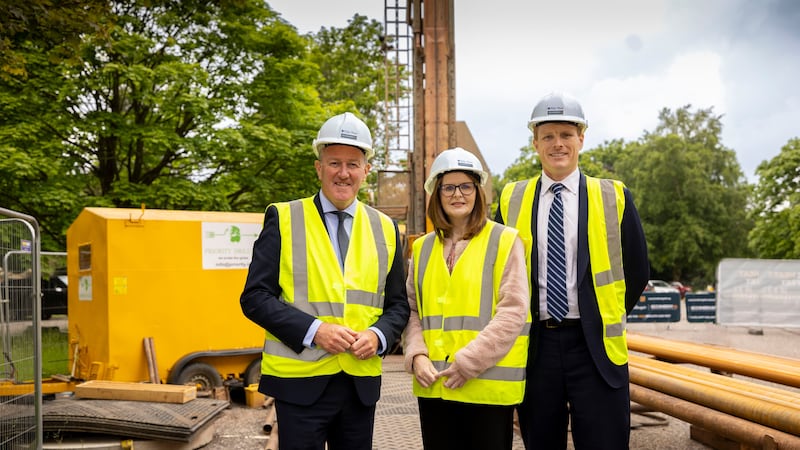House sales in Northern Ireland rose marginally in July, bouncing back from two previous months of decline, the latest Royal Institution of Chartered Surveyors (Rics) residential market survey shows.
And property professionals appear to be optimistic on the sales outlook too, as a net balance of 60% of respondents expect to sell more houses over the next three months.
Some 40% of surveyors in Northern Ireland also report that there has been an increase in new buyer enquiries, which was the second highest balance seen across the UK after the north west of England.
On supply, surveyors locally report that new instructions to sell rose last month, while Northern Ireland respondents note an upward trend on pricing.
Rics’ regional residential property spokesman Samuel Dickey says: “The first half of 2025 was relatively steady for Northern Ireland’s residential property market and it’s encouraging to see this continuing as we progress into the second half of the year.
 Samuel Dickey, Rics’ residential spokesman in the north
Samuel Dickey, Rics’ residential spokesman in the north
“While the most recent survey sees surveyors reporting a rise in supply coming to the market, we still do not have sufficient stock to meet the needs of the market.
“It’s hoped that the recent easing of interest rates will support new buyers in the coming months.”
In the UK as a whole, the flow of fresh rental properties coming to market has fallen at its fastest rate in five years, according to surveyors.
A net balance of 31% of professionals saw new instructions from landlords falling rather than rising, which was the weakest reading since April 2020, the Rics survey said.
Alongside the “firmly negative trend” in landlords making their property available for rent, tenant demand held steady in the three months to July, the report added.
Rics chief economist Simon Rubinsohn said: “The somewhat flatter tone to the feedback to the July Rics survey highlights ongoing challenges facing the housing market.
“Although interest rates were lowered at the latest Bank of England meeting, the split vote has raised doubts about both the timing and extent of further reductions.
“Meanwhile, uncertainty about the potential contents of the Chancellor’s autumn Budget is also raising some concerns.
“Against this backdrop, respondents continue to report that the market remains particularly price sensitive at the present time.”


